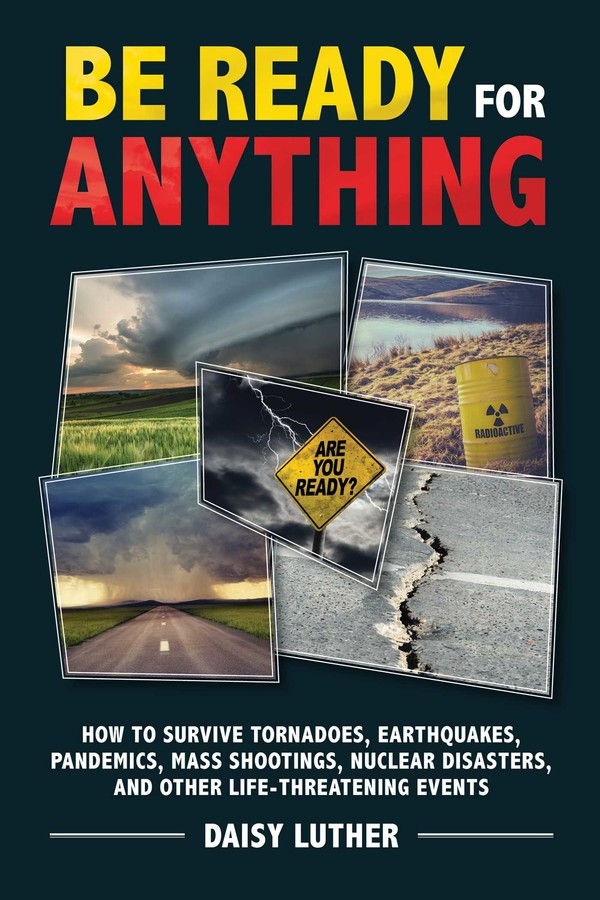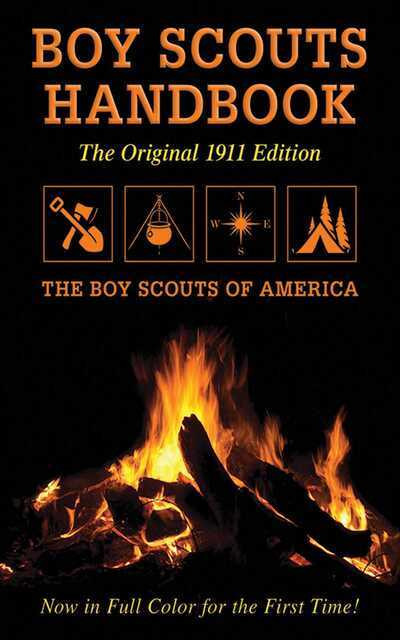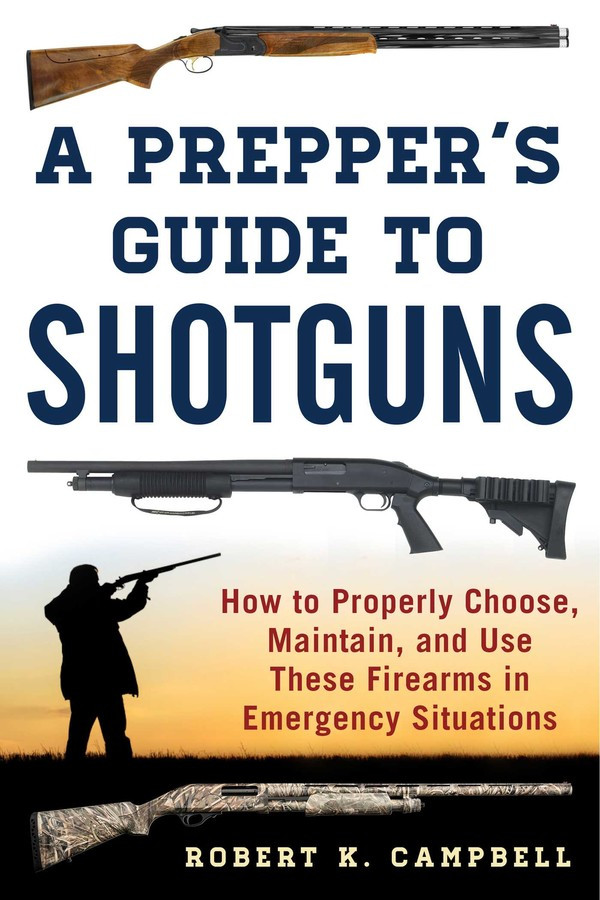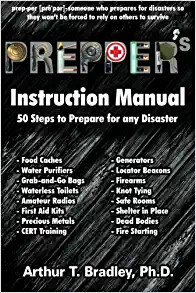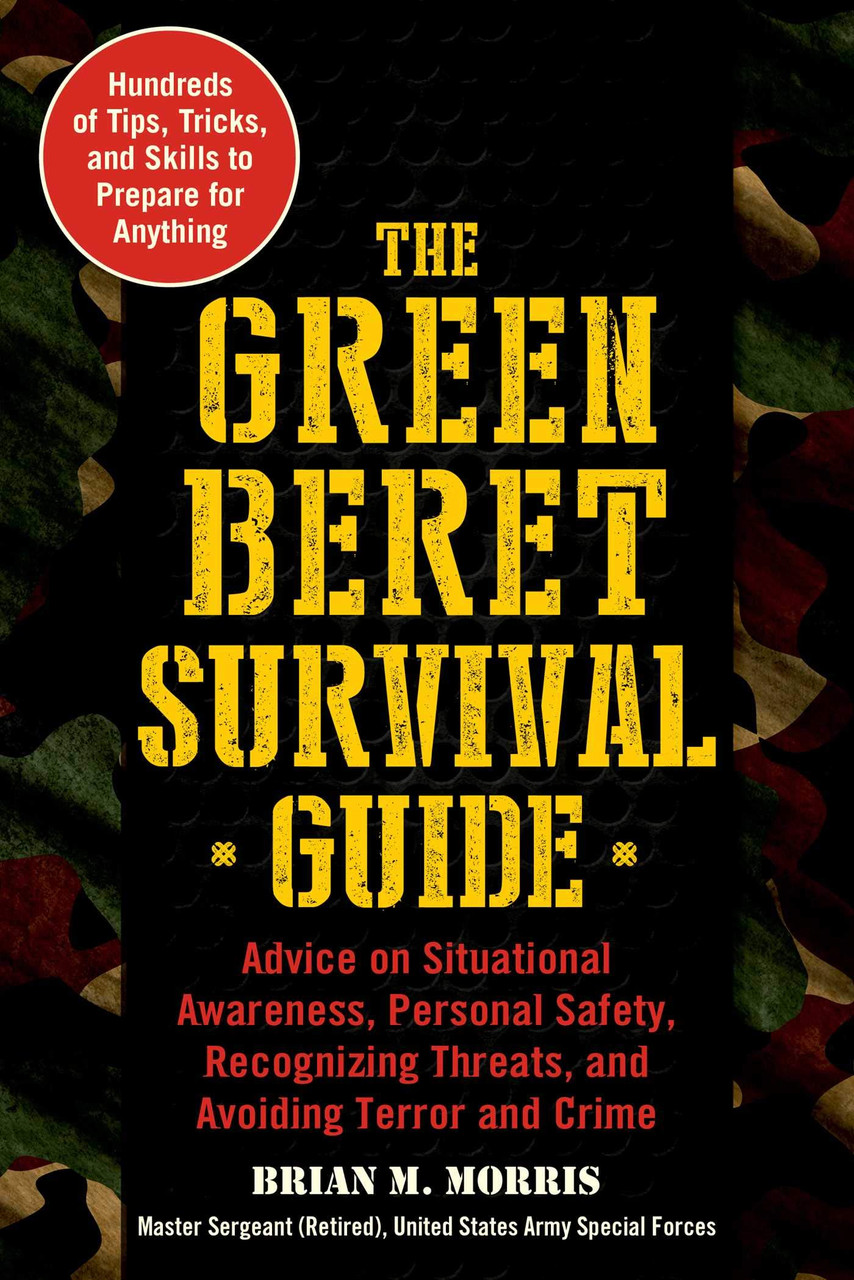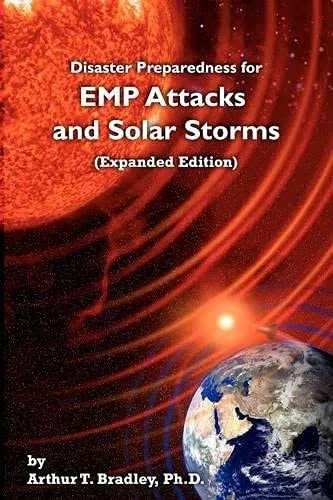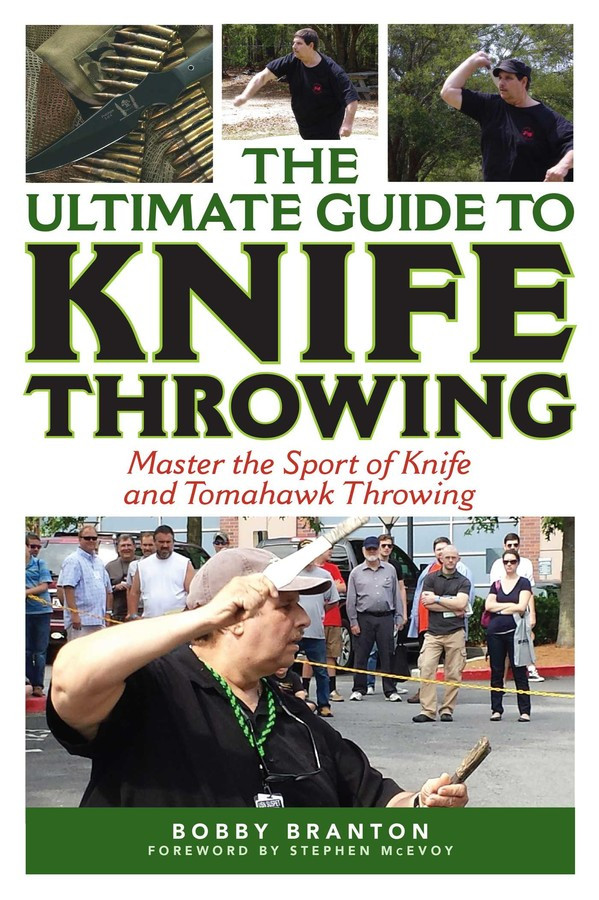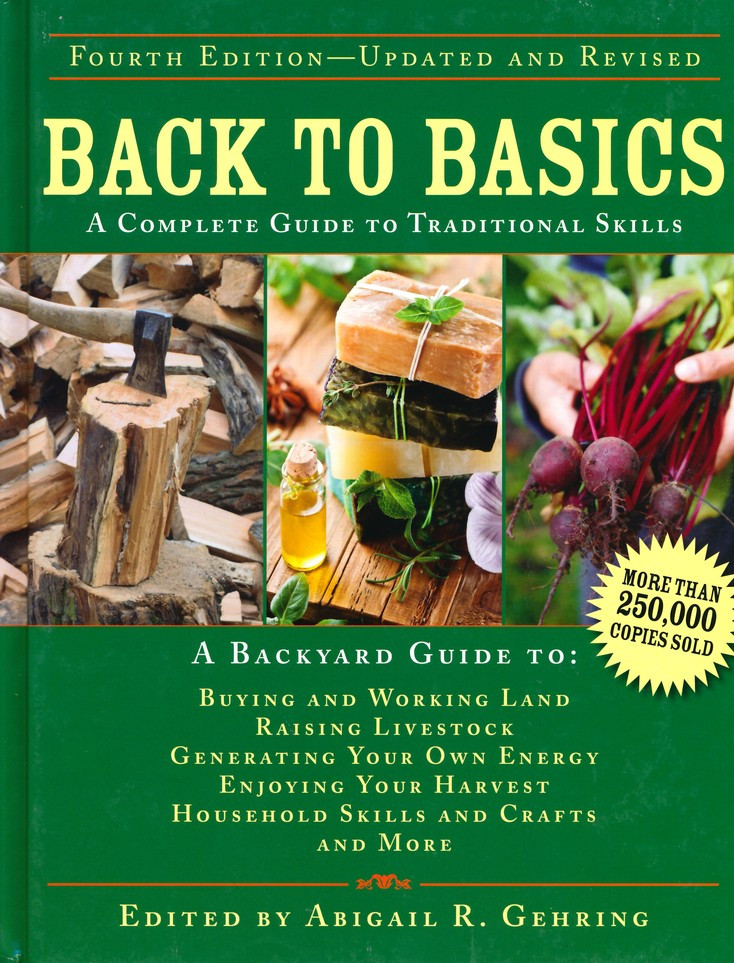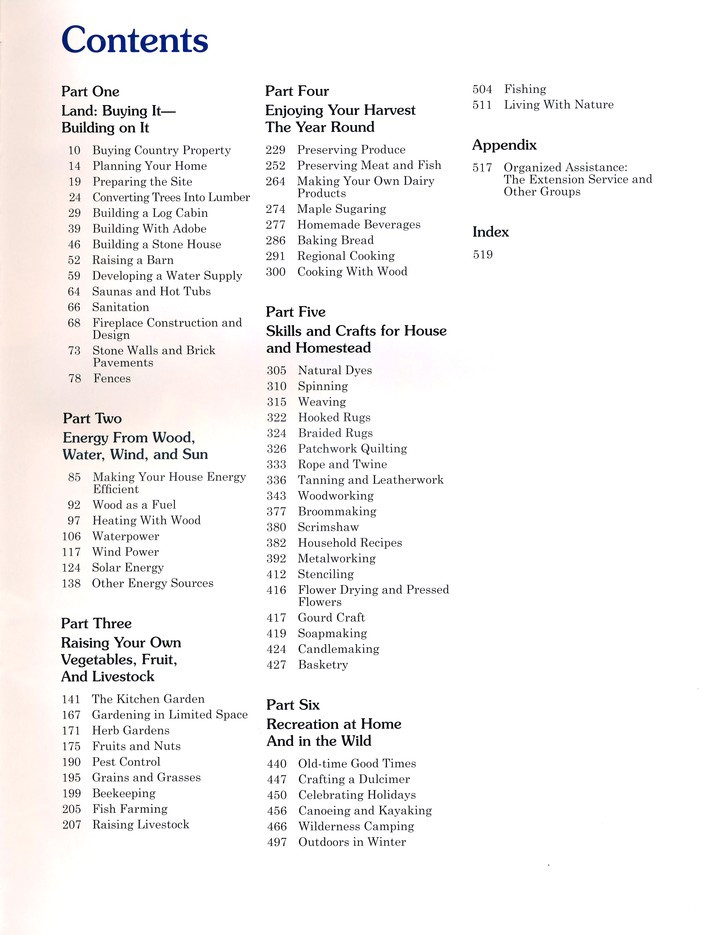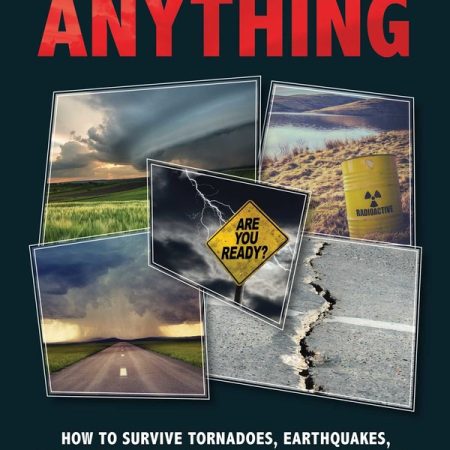| Content | Will you be a ready for a dozen different kinds of disasters, including hurricanes, civil unrest, mass shootings, and wildfires?
You want to be prepared for whatever emergencies come your way. While prepping for a dozen different disasters may sound like a daunting task, there’s good news.
Preparing for a wide variety of disasters requires the same basic supplies as preparing for one or two. For each event, there will be some special steps, unique information, and precautions you need to take, along with a few additional supplies, but your essentials will be the same. Learn how to prepare for:
- Earthquakes
- Tornadoes
- Hurricanes
- Winter Storms
- Wildfire Evacuations
- Pandemics
- Nuclear Disasters
- Mass Shootings
- Civil Unrest
- Economic Crises
- And More!
With directions, helpful appendices, checklists, and general guidance to getting prepped, this book will get you away from panic and straight to safety. | This is a full-color edition of the very first Boy Scouts Handbook, complete with the wonderful vintage advertisements that accompanied the original1911 edition, Over 40 million copies in print!
The original Boy Scouts Handbook standardized American scouting and emphasized the virtues and qualifications for scouting, delineating what the American Boy Scouts declared was needed to be a “well-developed, well-informed boy.” The book includes information on:
- The organization of scouting
- Signs and signaling
- Camping
- Scouting games
- Description of scouting honors.
Scouts past and present will be fascinated to see how scouting has changed, as well as what has stayed the same over the years.
| As consumerism and a meat-heavy, processed diet become the norm and the world's population continues to grow at an exponential rate, more and more people are looking toward a more sustainable path for food. Authors Douglas Boudreau and Mykel Hawke believe that the future of food lies in the wild foods of times spanning back to before the mass-agriculture system of today.
People have become distanced from the very systems that provide their food, and younger generations are increasingly unable to identify even the trees in their backyards. In response, Boudreau and Hawke have provided a compendium of wild edible plants in North America. Foraging for Survival is a comprehensive breakdown of different plant species from bearded lichen to taro, and from all over the United States. There are also tips for growing local native plants in the backyard to facilitate learning and enhance table fare at home. Other information you'll find inside:
- A list of different types of edible wild plants
- Foraging techniques
- Bugs and other grubs that can be consumed
- Warning signs of poisonous plants
- And much more!
Whether you're a hiker taking a walk through your local wilderness, or chef looking for new ingredients to incorporate in your dishes, Foraging for Survival is the book for you!
| In the chaos of a survival situation, firearms will be important tools for protecting yourself, your family, and your supplies as well as for hunting animals for food. In A Prepper’s Guide to Shotguns, Robert K. Campbell discusses the best shotguns to have with you in any confrontation—including the end of the world as we know it. Shotguns that are easy to carry and lightweight and that shoot accurately and reliably at close ranges are ideal candidates for personal protection. In A Prepper’s Guide to Shotguns, Campbell explores specific shotguns that are appropriate for urban, rural, and suburban environments, with tips on how to use them in each context. Whether at home or in a survival scenario, these shotguns are the best for defense. A Prepper’s Guide to Shotguns not only reviews the specific features of defensive shotguns but how to use them—whether on the move, in a defensive situation, while retreating, or in other circumstances. Campbell also offers expert tips on how to improve your marksmanship, how to maintain your firearms, crucial gun safety rules, what ammo and optics to purchase, and more. | If your community was hit with a major disaster, such as an earthquake, flood, hurricane, or radiological release, how would you handle it? Would you be forced to fall into line with hundreds of thousands of others who are so woefully unprepared? Or do you possess the knowledge and supplies to adapt and survive? Do you have a carefully stocked pantry, a method to retrieve and purify water, a source for generating electricity, and the means to protect your family from desperate criminals? In short, are you a prepper?
This book contains fifty of the most important steps that individuals and families can take to prepare for a wide range of disasters. Each step is complete, clearly described, and actionable. Together, they cover every aspect of disaster preparedness, including assessing the threats, making a plan, storing food, shoring up your home, administering first aid, creating a safe room, gathering important papers, learning to shoot, generating electricity, keeping warm, and much more.
Recent events have reminded us that our world is a dangerous place, whether it is a deadly tsunami, a nuclear meltdown, or a stock market collapse. Our lifestyle and even our very existence is forever uncertain. Join the quickly growing community of individuals and families determined to stand ready. Become a prepper!
| Today's society is one in which we, as individuals, are constantly barraged by the threat of domestic terrorism. The ever-present fear for your safety and the safety of those we love can overwhelm you if you aren’t sure how to protect yourself. Luckily, distinguished combat veteran Brian M. Morris's Green Beret Survival Guide is here to help ease your fears.
Using his firsthand knowledge from the field as a Green Beret, Morris concisely outlines the steps that are necessary towards increasing one’s personal safety. Over the course of several chapters, Morris describes the importance of situational awareness, meaning staying alert, being aware of your surroundings, and understanding the reality of threats that you may face in any given situation. An individual with good situational awareness never takes anything for granted and makes security a part of his or her daily routine. By being observant and practicing several different methods of observation, one can avoid falling prey to terrorist, thieves, and other criminals.
|
